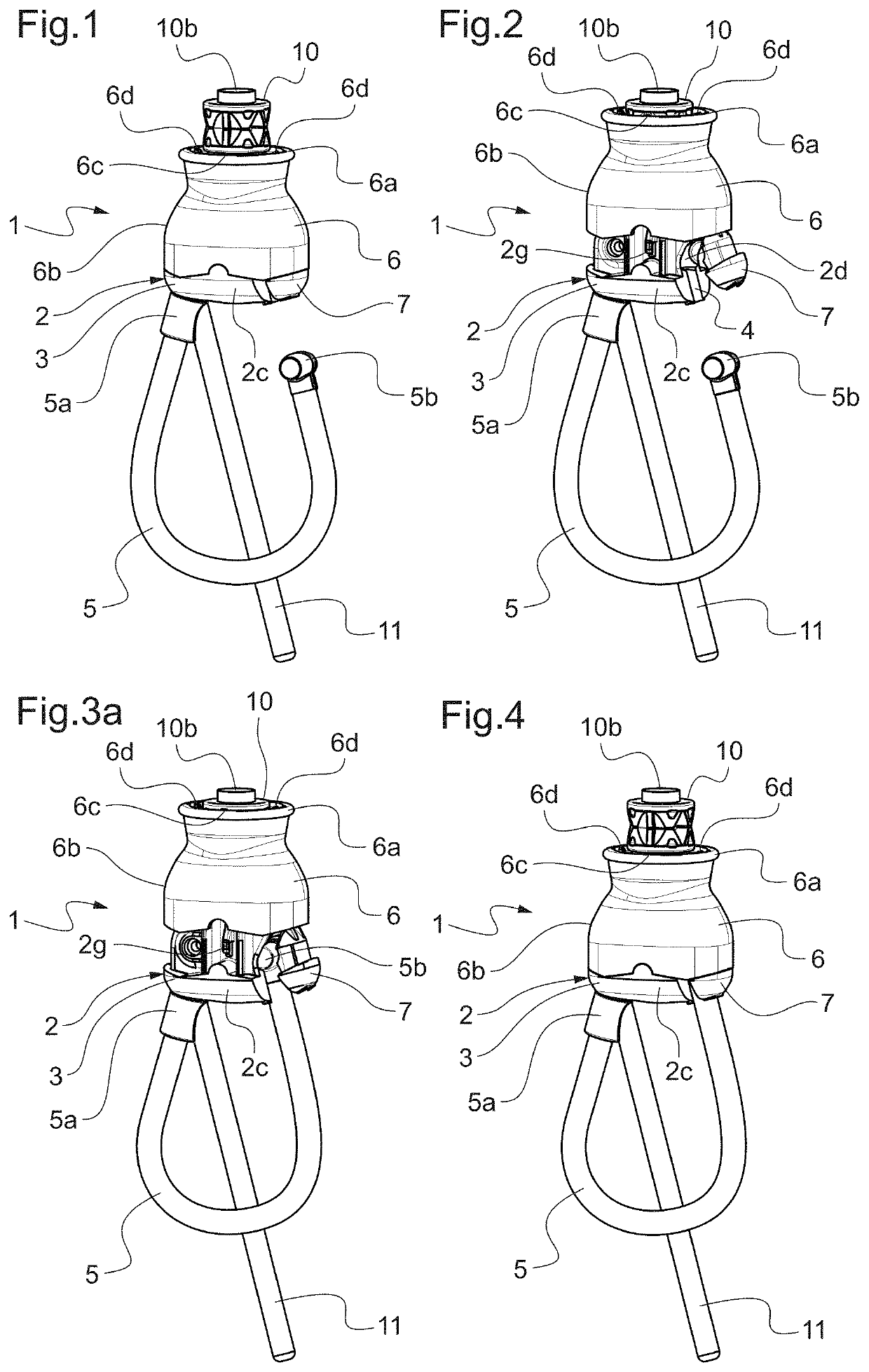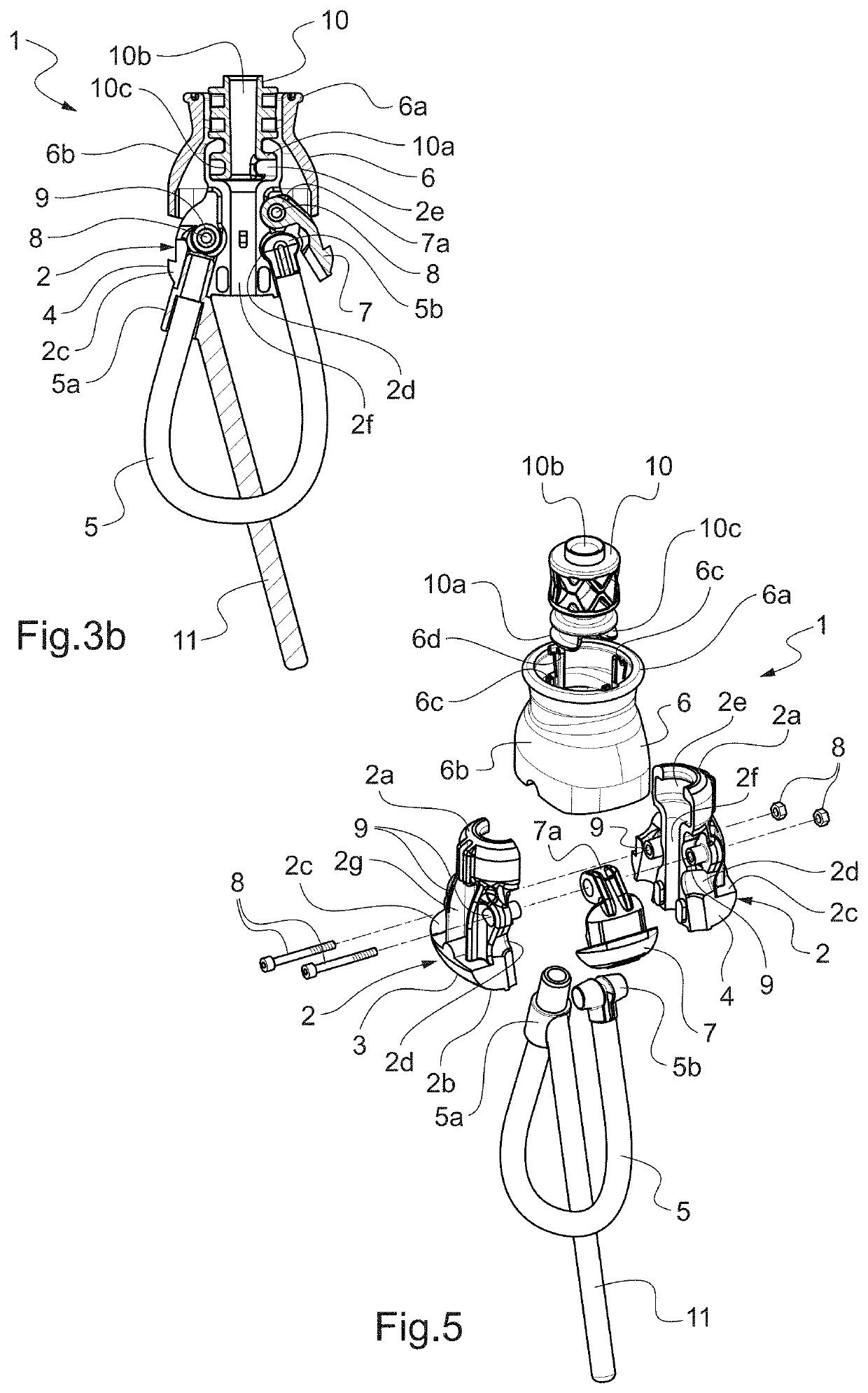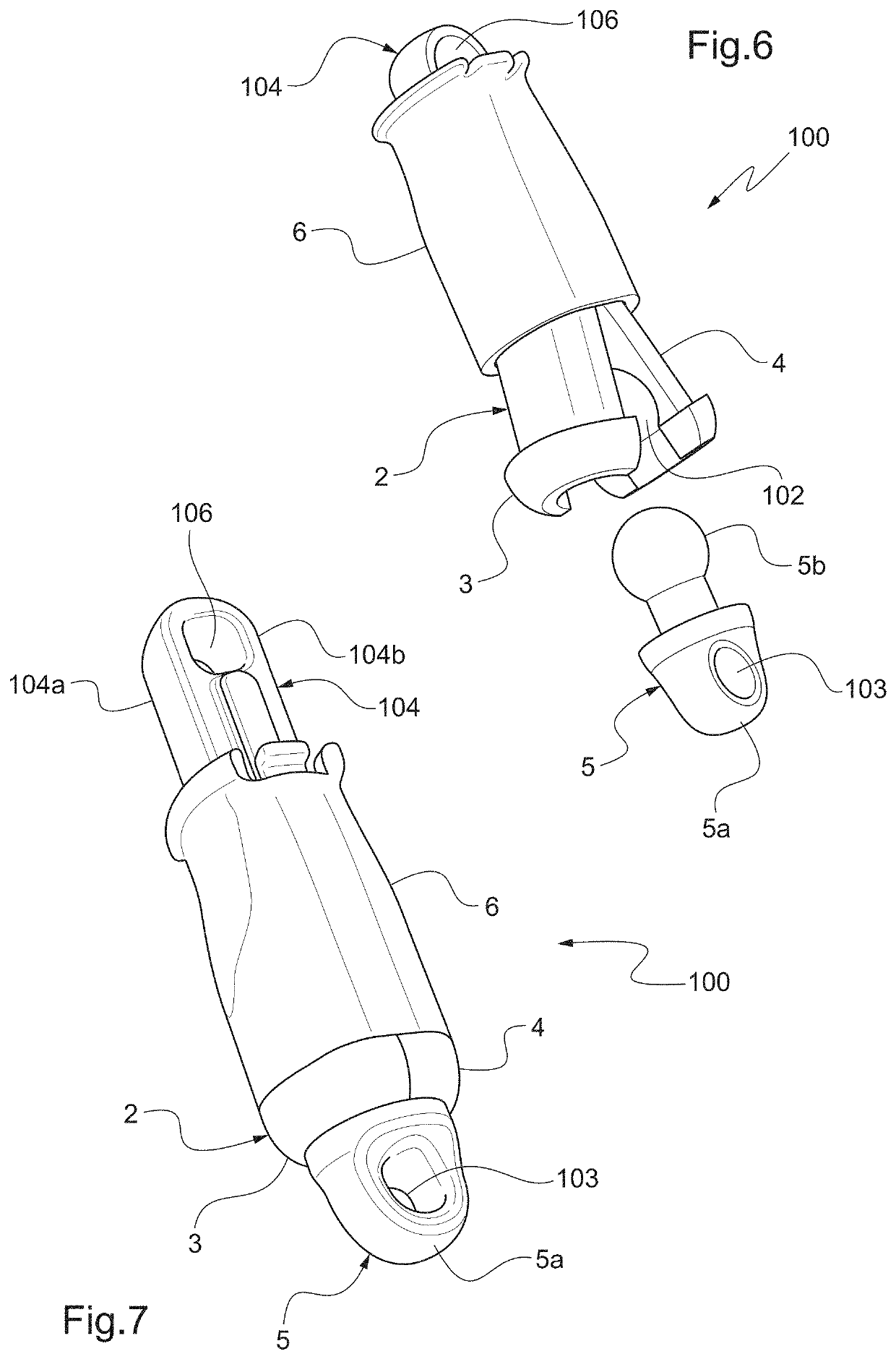Coupling system, assembly of an equipment rigidly connected to a user and a coupling system and kiteboarding kite bar
a coupling system and equipment technology, applied in the field of sports, can solve the problems of high manufacturing cost, large distance between the kiteboarder and the kiteboard bar, and the central body of the single-piece release system is a very complex part, and achieve the effect of reducing manufacturing cos
- Summary
- Abstract
- Description
- Claims
- Application Information
AI Technical Summary
Benefits of technology
Problems solved by technology
Method used
Image
Examples
first embodiment
[0094]FIGS. 1, 2, 3a, 3b, 4 and 5 show a coupling system 1 according to the present invention.
[0095]The coupling system 1 for coupling a piece of equipment rigidly connected to a user, such as a harness, to at least one rigging strand, for example connected to a kiteboarding kite, comprises a central body 2 made up of two parts 3 and 4 configured to be assembled to one another by an attachment means that will be described in more detail hereinafter, the central body 2 having a rigging strand side end 2a and an opposite user side end 2b.
[0096]Designing the central body 2 in two parts 3 and 4 allows natural stripping of the central body 2 during its design, and therefore reduces the manufacturing cost of the corresponding mold, which no longer needs to have drawers.
[0097]The coupling system 1 further comprises a fastener 5 comprising two ends 5a and 5b. The fastener 5 is made up of a rope or cable covered with a tube of the polyvinyl chloride (PVC), polyurethane, or thermoplastic pol...
second embodiment
[0146]FIGS. 6, 7 and 8 show a coupling system 100 according to the present invention.
[0147]The elements that are shared between the first embodiment of the invention and this second embodiment of the invention bear the same reference numerals and will not be described in more detail here when they have identical structures.
[0148]In this second embodiment of the invention, the fastener second end 5b blocking means is made up of the two parts 3, 4 of the central body 2, which are symmetrical and connected to one another by a rotation axis at the rigging strand side end 2a of the central body 2.
[0149]Said rotation axis is formed by a nut-screw assembly 8, the screw of the nut-screw assembly 8 passing through a hole 101 formed in each part 3, 4 of the central body 2 at the rigging strand side end 2a. The two parts 3 and 4 of the central body 2 can thus move away from one another, by rotation around said rotation axis, when the shell 6 is pushed by the user away from the latter.
[0150]The...
PUM
 Login to View More
Login to View More Abstract
Description
Claims
Application Information
 Login to View More
Login to View More - R&D
- Intellectual Property
- Life Sciences
- Materials
- Tech Scout
- Unparalleled Data Quality
- Higher Quality Content
- 60% Fewer Hallucinations
Browse by: Latest US Patents, China's latest patents, Technical Efficacy Thesaurus, Application Domain, Technology Topic, Popular Technical Reports.
© 2025 PatSnap. All rights reserved.Legal|Privacy policy|Modern Slavery Act Transparency Statement|Sitemap|About US| Contact US: help@patsnap.com



